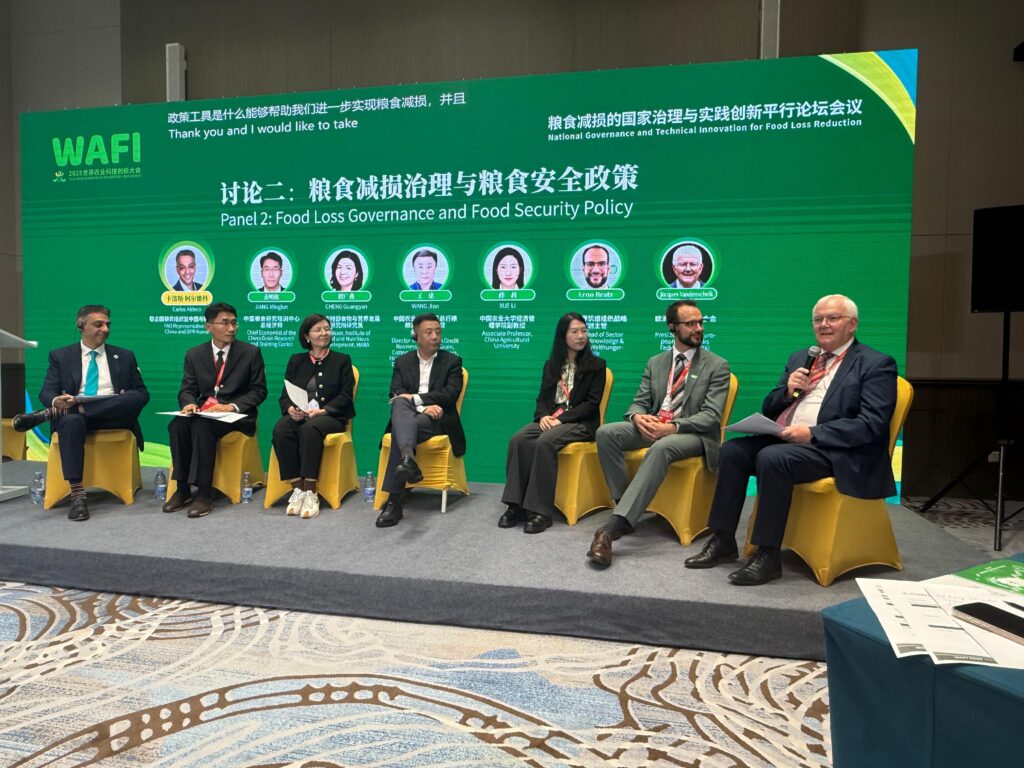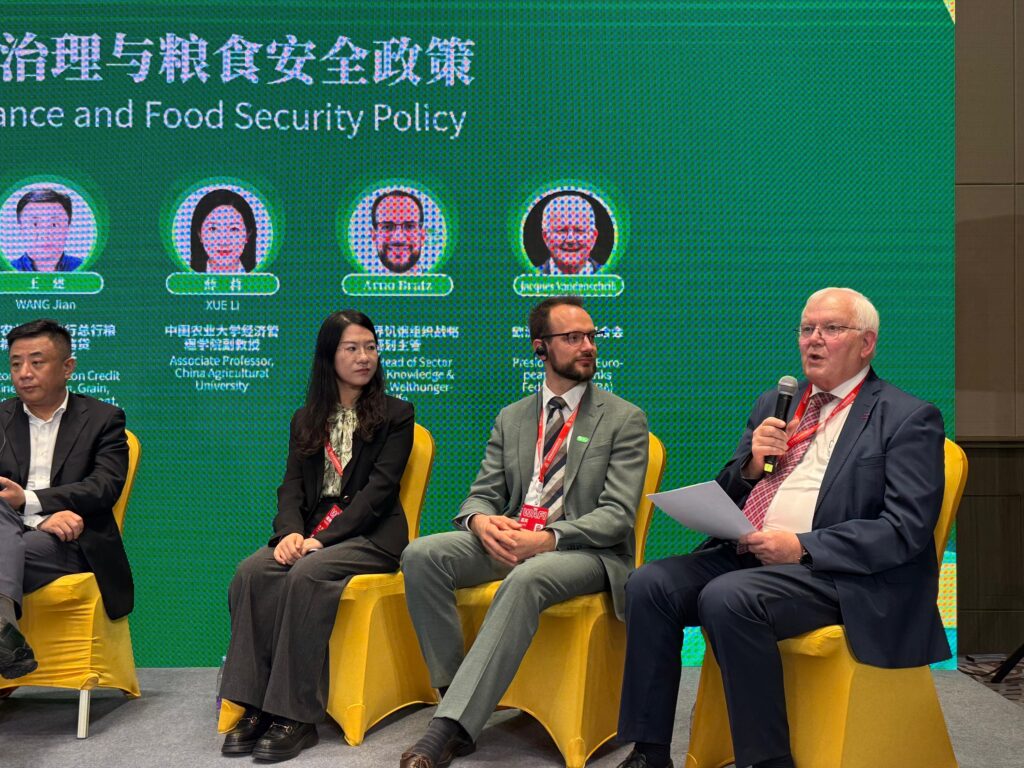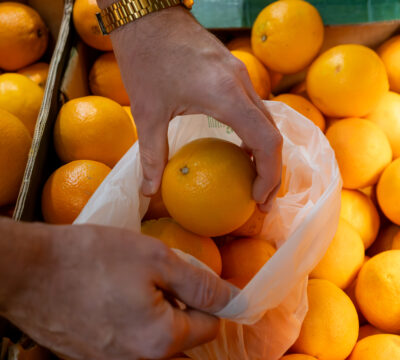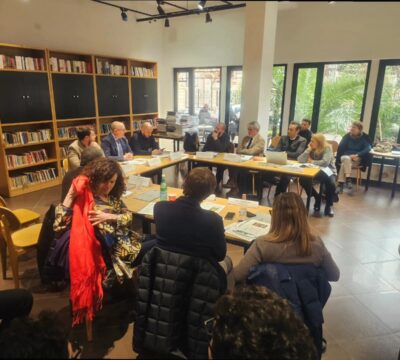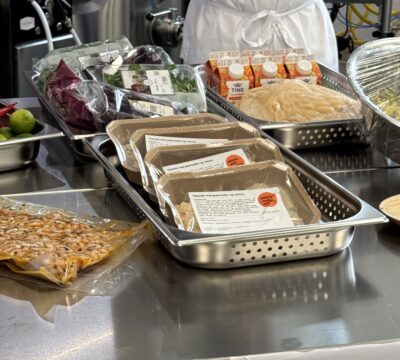“Food banks bring data, logistics networks, and community connections that are essential for translating high-level directives into ground-level results. FEBA acts as a bridge between the EU’s regulatory ambitions and practical implementation in the field.“
This was the message from our representative, Honorary President Jacques Vandenschrik, at the World AgriFood Innovation (WAFI) Conference held from October 12 to 15, 2025, in Beijing. The formal inclusion of FEBA at the event, which largely featured representatives from the southern hemisphere, underlined the leverage our network provides.
A promising but fragile Directive
Every day in the European Union, thousands of tonnes of perfectly good food are thrown away. At the same time, queues for food assistance grow longer in every city. This contradiction, in a continent that calls itself a model of sustainability and social justice, has become unbearable. The EU’s revised Directive on Food Waste is a step forward and was one of the most discussed regulatory developments at the AgriFood conference. Adopted in September 2025, this directive is groundbreaking as it introduces, for the first time, binding food waste reduction targets for member states (Find out more on the Directive here). But without determined action, it will remain just another promise on paper.
From a Charity that patches holes to a structural approach that prevents them
An ambitious directive that will mean little without concrete follow-through. Member states must measure, publish and account for their progress. Europe doesn’t lack laws – it lacks results.
For over forty years, Europe’s food banks have proved that another way is possible. They collect, sort and redistribute surplus food from producers and retailers to thousands of charities. Each year, this prevents the destruction of thousands of tonnes of food and helps feed millions of people.
FEBA coordinates a network of 351 food banks linked to more than 43,000 local organisations in 30 countries, supported by nearly 100,000 volunteers. This web of people and logistics is a powerful tool for change – at the intersection of social, economic and environmental goals.
The directive finally recognises that. It requires that food banks be consulted in national planning, involved in monitoring and integrated into food redistribution systems. This marks a real shift: from charity that patches holes to a structural approach that prevents them.
The U.S. institutional silence
As environmental issues ranked on the list of many discussions, the U.S. absence was felt — not just symbolically, but practically. The U.S. institutional silence on topics as transatlantic perspectives on food waste, surplus donation, and supply-chain regulation contrasts sharply with Europe’s newly codified consensus on mandatory waste reduction and redistribution.
An appeal to Europe’s conscience
The directive opens access to European funding programmes such as ESF+ and Horizon Europe. But the real question is political: will governments treat food waste as a priority, or as a footnote?
Cutting food waste is not just about better waste management. It’s about rethinking our relationship with food, and with fairness. In a Europe of abundance, hunger is a collective wound. Every discarded meal is a shared failure – a lost resource and an affront to human dignity.
The European Union now has a framework. The challenge is to turn law into action, good intentions into real change, and abundance into justice. Food banks are ready to help lead that transition. They show that efficiency, equity and sustainability can reinforce each other – that fighting waste can also drive innovation and social cohesion. And they remind us that Europe will only be true to its values when it learns to share more fairly what it already produces.
